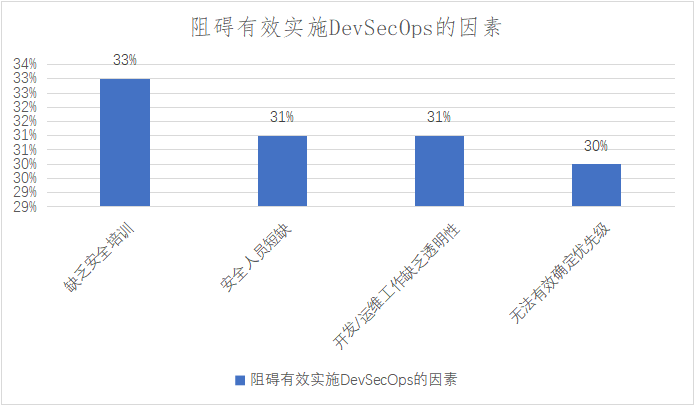初始化服务器
#python3 init_host.py init 【主机名】 【主机ip】
python3 init_host.py init NODE01 192.168.199.10
init_host.py 文件内容
#!/usr/bin/env python
# -*- coding: utf-8 -*-
import json
import os
import sys
import logging
import time
import logging.config
import subprocess
PYTHON_VERSION = sys.version_info.major
CURRENT_DIR = os.path.dirname(os.path.abspath(__file__))
if PYTHON_VERSION == 2:
reload(sys)
sys.setdefaultencoding('utf-8')
# ---- 日志定义部分 ----
# 日志配置 建议输入绝对路径,默认生成日志会添加 时间字段
LOG_PATH = "/tmp/init_host_standalone.log"
# 屏幕输出日志级别
CONSOLE_LOG_LEVEL = logging.INFO
# 文件日志级别
FILE_LOG_LEVEL = logging.DEBUG
def generate_log_filepath(log_path):
"""生成日志名称"""
time_str = time.strftime('%Y-%m-%d-%H-%M-%S', time.localtime(time.time()))
dirname = os.path.dirname(log_path)
name_split = os.path.basename(log_path).split('.')
if len(name_split) == 1:
name = "{0}_{1}".format(name_split[0], time_str)
file_path = os.path.join(dirname, name)
else:
name_split.insert(-1, time_str)
file_path = os.path.join(dirname, '.'.join(name_split))
return file_path
# 日志配置
log_path = generate_log_filepath(LOG_PATH)
logging.basicConfig(
level=logging.DEBUG,
format='%(asctime)s %(filename)s[line:%(lineno)d] %(levelname)s %(message)s',
datefmt='%a, %d %b %Y %H:%M:%S',
filename=log_path,
filemode='a')
console = logging.StreamHandler()
console.setLevel(logging.INFO)
formatter = logging.Formatter(
'%(asctime)s %(filename)s[line:%(lineno)d] %(levelname)s %(message)s')
console.setFormatter(formatter)
logger = logging.getLogger()
logger.addHandler(console)
KERNEL_PARAM = """# Disable IPv6
net.ipv6.conf.all.disable_ipv6 = 1
net.ipv6.conf.default.disable_ipv6 = 1
# ARP
net.ipv4.conf.default.rp_filter = 0
net.ipv4.conf.all.rp_filter = 0
net.ipv4.neigh.default.gc_stale_time = 120
net.ipv4.conf.default.arp_announce = 2
net.ipv4.conf.all.arp_announce = 2
net.ipv4.conf.lo.arp_announce = 2
# TCP Memory
net.core.rmem_default = 2097152
net.core.wmem_default = 2097152
net.core.rmem_max = 4194304
net.core.wmem_max = 4194304
net.ipv4.tcp_rmem = 4096 8192 4194304
net.ipv4.tcp_wmem = 4096 8192 4194304
net.ipv4.tcp_mem = 524288 699050 1048576
# TCP SYN
net.ipv4.tcp_syncookies = 1
net.ipv4.tcp_synack_retries = 1
net.ipv4.tcp_syn_retries = 1
net.ipv4.tcp_max_syn_backlog = 16384
net.core.netdev_max_backlog = 16384
# TIME_WAIT
net.ipv4.route.gc_timeout = 100
net.ipv4.tcp_max_tw_buckets = 5000
net.ipv4.tcp_tw_reuse = 1
net.ipv4.tcp_timestamps = 0
net.ipv4.tcp_fin_timeout = 2
net.ipv4.ip_local_port_range = 20000 50000
# TCP keepalive
net.ipv4.tcp_keepalive_probes = 3
net.ipv4.tcp_keepalive_time = 60
net.ipv4.tcp_keepalive_intvl = 10
# Other TCP
net.ipv4.tcp_max_orphans = 65535
net.core.somaxconn = 16384
net.ipv4.tcp_sack = 1
net.ipv4.tcp_window_scaling = 1
vm.max_map_count=262144
vm.min_free_kbytes=512000
vm.swappiness = 0"""
KERNEL_KEYWORD = [
"net.ipv6.conf.all.disable_ipv6",
"net.ipv6.conf.default.disable_ipv6",
"net.ipv4.conf.default.rp_filter",
"net.ipv4.conf.all.rp_filter",
"net.ipv4.neigh.default.gc_stale_time",
"net.ipv4.conf.default.arp_announce",
"net.ipv4.conf.all.arp_announce",
"net.ipv4.conf.lo.arp_announce",
"net.core.rmem_default",
"net.core.wmem_default",
"net.core.rmem_max",
"net.core.wmem_max",
"net.ipv4.tcp_rmem",
"net.ipv4.tcp_wmem",
"net.ipv4.tcp_mem",
"net.ipv4.tcp_syncookies",
"net.ipv4.tcp_synack_retries",
"net.ipv4.tcp_syn_retries",
"net.ipv4.tcp_max_syn_backlog",
"net.core.netdev_max_backlog",
"net.ipv4.route.gc_timeout",
"net.ipv4.tcp_max_tw_buckets",
"net.ipv4.tcp_tw_reuse",
"net.ipv4.tcp_timestamps",
"net.ipv4.tcp_fin_timeout",
"net.ipv4.ip_local_port_range",
"net.ipv4.tcp_keepalive_probes",
"net.ipv4.tcp_keepalive_time",
"net.ipv4.tcp_keepalive_intvl",
"net.ipv4.tcp_max_orphans",
"net.core.somaxconn",
"net.ipv4.tcp_sack",
"net.ipv4.tcp_window_scaling",
"vm.max_map_count",
"vm.swappiness",
"vm.min_free_kbytes"
]
TO_MODIFY_HOST_NAME = [
"localhost",
"localhost.localhost",
"localhost.domain",
]
class BaseInit(object):
""" Base class 检查权限 / 执行命令方法 """
def check_permission(self):
""" 检查权限 """
logger.info("开始检查当前用户执行权限")
if not os.getuid() == 0:
self.__check_is_sodu()
if not self.is_sudo:
logging.error('当前执行用户不是root,且此用户没有sudo NOPASSWD 权限,无法初始化!')
exit(1)
logger.info('当前用户权限正常,开始执行脚本')
def __check_is_sodu(self):
""" 是否具有 sodu 权限 """
logger.info("检查是否具有sodu免密码权限")
_cmd = "sudo -n 'whoami' &>/dev/null"
_, _, _code = self.cmd(_cmd)
self.is_sudo = _code == 0
logger.info("是否具有sodu免密码权限: {}".format(self.is_sudo))
def cmd(self, command):
""" 执行shell 命令 """
if hasattr(self, 'is_sudo'):
if command.lstrip().startswith("echo"):
command = "sudo sh -c '{0}'".format(command)
else:
command = "sudo {0}".format(command)
logger.debug("Exec command: {0}".format(command))
p = subprocess.Popen(
command,
stdout=subprocess.PIPE,
stderr=subprocess.PIPE,
shell=True,
)
stdout, stderr = p.communicate()
_out, _err, _code = stdout, stderr, p.returncode
logger.debug(
"Get command({0}) stdout: {1}; stderr: {2}; ret_code: {3}".format(
command, _out, _err, _code
)
)
return _out, _err, _code
@staticmethod
def read_file(path, mode='r', res='str'):
"""
:param path 路径
:param mode 模式
:param res 返回数据类型 str/list
"""
if not os.path.exists(path):
logger.error('读取文件失败,文件路径错误:{}'.format(path))
exit(1)
with open(path, mode) as f:
data = f.read() if res == 'str' else f.readlines()
return data
def __get_os_version(self):
logging.debug('开始获取系统版本信息')
# match = False
_, _, _code = self.cmd('systemctl --version')
if _code != 0:
logger.error("执行失败,当前操作系统不支持本脚本")
exit(1)
self.os_version = 7
logging.debug('获取系统版本信息完成')
def set_opts(self, **kwargs):
""" 根据kwargs 设置参数"""
raise Exception("程序错误,需实现set_opts方法")
def run(self):
# 检查权限
if sys.argv[1] != 'valid':
self.check_permission()
self.__get_os_version()
logging.info("开始执行脚本")
self.run_methods()
def run_methods(self):
try:
assert isinstance(self.m_list, list), "m_list 类型错误 方法错误,请检查脚本"
assert len(self.m_list) > 0, "m_list 为空,请检查脚本"
for func_info in self.m_list:
assert isinstance(func_info, tuple) and len(
func_info) == 2, "todo_list 方法错误,请检查脚本:{}".format(func_info)
method_name, method_note = func_info
if hasattr(self, method_name):
f = getattr(self, method_name)
logger.info("开始 执行: {}".format(method_note))
f()
logger.info("执行 完成: {}".format(method_note))
else:
logger.warn("安装方法列表错误,{} 方法不存在".format(method_note))
else:
logging.info("执行结束, 完整日志保存在 {}".format(log_path))
except TypeError:
logger.error("脚本配置错误,TypeError:")
except Exception as e:
logger.error(e)
logging.info("执行结束, 完整日志保存在 {}".format(log_path))
exit(1)
class InitHost(BaseInit):
""" 初始化节点信息 """
def __init__(self, host_name, local_ip):
self.m_list = [
('env_set_timezone', '设置时区'),
('env_set_firewall', '关闭防火墙'),
('env_set_disable_ipv6', '设置关闭ipv6'),
('env_set_language', '设置语言'),
('env_set_file_limit', '设置文件句柄数'),
('env_set_kernel', '设置内核参数'),
('env_set_disable_selinux', '关闭selinux'),
('set_hostname', '设置主机名'),
]
# TODO
self.hostname = host_name
self.local_ip = local_ip
def env_set_timezone(self):
""" 设置时区 """
timezone = "PRC"
self.cmd("test -f /etc/timezone && rm -f /etc/timezone")
self.cmd("rm -f /etc/localtimze")
self.cmd(
"ln -sf /usr/share/zoneinfo/{0} /etc/localtime".format(timezone))
def env_set_firewall(self):
""" 关闭 firewall """
_, _, _code = self.cmd(
"systemctl status firewalld.service | egrep -q 'Active: .*(dead)'"
)
if _code != 0:
self.cmd("systemctl stop firewalld.service >/dev/null 2>&1")
self.cmd("systemctl disable firewalld.service >/dev/null 2>&1")
def env_set_disable_ipv6(self):
""" 关闭ipv6 """
_, _, _code = self.cmd("grep -q 'ipv6.disable' /etc/default/grub")
if _code == 0:
self.cmd(
"sed -i 's/ipv6.disable=[0-9]/ipv6.disable=1/g' /etc/default/grub"
)
else:
self.cmd(
"""sed -i '/GRUB_CMDLINE_LINUX/ s/="/="ipv6.disable=1 /' /etc/default/grub"""
)
self.cmd("sysctl -w net.ipv6.conf.all.disable_ipv6=1")
def env_set_language(self):
""" 设置语言 """
self.cmd("localectl set-locale LANG=en_US.UTF-8")
def env_set_file_limit(self):
""" 设置打开的文件句柄数 """
_file_max_out, _, _ = self.cmd("cat /proc/sys/fs/file-max")
file_max = int(_file_max_out)
_nr_open_out, _, _ = self.cmd("cat /proc/sys/fs/nr_open")
nr_open = int(_nr_open_out)
if file_max < 655350:
self.cmd("sed -i '/fs.file-max/d' /etc/sysctl.conf")
self.cmd("echo 'fs.file-max = 655350' >>/etc/sysctl.conf")
self.cmd("sysctl -p 1>/dev/null")
file_max = 655350
else:
file_max = 655350
self.cmd("sed -i '/nofile/d' /etc/security/limits.conf")
self.cmd(
'echo "* - nofile {0}" >>/etc/security/limits.conf'.format(
file_max
)
)
if os.path.exists("/etc/security/limits.d/20-nproc.conf"):
self.cmd(
"sed -i 's#4096#unlimited#g' /etc/security/limits.d/20-nproc.conf"
)
self.cmd("sed -i '/^DefaultLimitCORE/d' /etc/systemd/system.conf")
self.cmd("sed -i '/^DefaultLimitNOFILE/d' /etc/systemd/system.conf")
self.cmd("sed -i '/^DefaultLimitNPROC/d' /etc/systemd/system.conf")
c = 'echo -e "DefaultLimitCORE=infinity\\nDefaultLimitNOFILE={0}\\nDefaultLimitNPROC={0}" >>/etc/systemd/system.conf'.format(
file_max)
self.cmd(
c
)
self.cmd("ulimit -SHn {0}".format(file_max))
def env_set_kernel(self):
""" 设置内核参数 """
for item in KERNEL_KEYWORD:
self.cmd('sed -i "/{0}/d" /etc/sysctl.conf'.format(item.strip()))
self.cmd('sed -i "/tables/d" /etc/sysctl.conf')
self.cmd('echo "{0}" >>/etc/sysctl.conf'.format(KERNEL_PARAM))
self.cmd("sysctl -p 1>/dev/null")
def env_set_disable_selinux(self):
""" 禁用 selinux """
if os.path.exists("/etc/selinux/config"):
self.cmd(
"sed -i 's#^SELINUX=.*#SELINUX=disabled#g' /etc/selinux/config")
self.cmd("setenforce 0")
def set_hostname(self):
"""设置主机名"""
_out, _err, _code = self.cmd("echo $(hostname)")
if _out.strip().lower() in TO_MODIFY_HOST_NAME or _out.strip().isdigit():
self.cmd('echo "{0}" >/etc/hostname'.format(self.hostname))
self.cmd('echo "{0}" > /proc/sys/kernel/hostname'.format(self.hostname))
self.cmd("hostname {0}".format(self.hostname))
self.cmd('echo "{0} {1}" >> /etc/hosts'.format(self.local_ip, self.hostname))
class ValidInit(BaseInit):
def __init__(self):
self.m_list = [
('valid_env_timezone', '校验时区'),
('valid_env_firewall', '校验防火墙'),
('valid_env_language', '校验语言'),
('valid_env_file_limit', '校验文件具柄数'),
('valid_env_kernel', '校验内核参数'),
('valid_env_disable_selinux', '校验selinux'),
('valid_host_name', '校验host_name'),
]
def valid_env_timezone(self):
""" 校验时区 """
assert os.readlink(
'/etc/localtime') == "/usr/share/zoneinfo/PRC", "时区校验失败"
def valid_env_firewall(self):
""" 校验防火墙 """
_, _, _code = self.cmd(
"systemctl status firewalld.service | egrep -q 'Active: .*(dead)'"
)
assert _code == 0, "防火墙校验失败"
def valid_env_language(self):
""" 校验语言 """
assert self.cmd(
"localectl status |grep LANG=en_US.UTF-8")[2] == 0, "语言环境校验失败"
def valid_env_file_limit(self):
""" 校验文件具柄数 """
_err = ""
_file_max_out, _, _ = self.cmd("cat /proc/sys/fs/file-max")
file_max = int(_file_max_out)
_nr_open_out, _, _ = self.cmd("cat /proc/sys/fs/nr_open")
nr_open = int(_nr_open_out)
if file_max < 655350:
_err = "文件句柄数校验失败"
else:
file_max = 655350
if self.cmd(
'grep "* - nofile {0}" /etc/security/limits.conf'.format(
file_max
)
)[2] != 0:
_err = "文件 /etc/security/limits.conf 校验失败"
if os.path.exists("/etc/security/limits.d/20-nproc.conf"):
if self.cmd(
"grep unlimited /etc/security/limits.d/20-nproc.conf"
)[2] != 0:
_err = "文件 /etc/security/limits.d/20-nproc.conf 校验失败"
if self.cmd('grep "DefaultLimitCORE=infinity" /etc/systemd/system.conf')[2] != 0:
_err = "文件 /etc/systemd/system.conf DefaultLimitCORE 校验失败"
if self.cmd('grep DefaultLimitNOFILE={0} /etc/systemd/system.conf'.format(file_max))[2] != 0:
_err = "文件 /etc/systemd/system.conf DefaultLimitNOFILE 校验失败"
if self.cmd('grep DefaultLimitNPROC={0} /etc/systemd/system.conf'.format(file_max))[2] != 0:
_err = "文件 /etc/systemd/system.conf DefaultLimitNPROC 校验失败"
assert _err == '', _err
def valid_env_kernel(self):
""" 校验内核参数 """
_list = [i.strip() for i in self.read_file('/etc/sysctl.conf',
res='list') if not i.strip().startswith('#')]
for i in KERNEL_PARAM.split('\n'):
if i.startswith('#'):
continue
assert i.strip() in _list, "内核参数校验失败: {}".format(i)
def valid_env_disable_selinux(self):
""" 校验selinux """
assert "SELINUX=disabled" in [
i.strip() for i in self.read_file('/etc/selinux/config', res='list') if
not i.strip().startswith('#')
], "selinux 校验失败"
def valid_host_name(self):
"""校验host_name不含localhost"""
_out, _err, _code = self.cmd("echo $(hostname)")
assert _out.strip().lower() not in TO_MODIFY_HOST_NAME and not _out.strip().isdigit(), "校验主机名失败"
def add_hostname_analysis(hostname_str):
logger.debug("传入主机信息:\n{}".format(hostname_str))
hostnames = json.loads(hostname_str or '[]')
with open("/etc/hosts", "r") as f:
hosts = f.read()
logger.debug("获取主机解析:\n{}".format(hosts))
hosts_analysis_dict = {}
for analysis_str in hosts.split("\n"):
if analysis_str.lstrip().startswith("#"):
continue
analysis_list = list(
filter(
lambda x: x,
analysis_str.strip().replace("\t", " ").split(" ")
)
)
if not analysis_list:
continue
hosts_analysis_dict[analysis_list[0]] = analysis_str
for hostname_dict in hostnames:
ip = hostname_dict.get("ip")
hostname = hostname_dict.get("hostname")
host_analysis_str = hosts_analysis_dict.get(ip, "")
if not host_analysis_str:
hosts += "{} {}\n".format(ip, hostname)
elif hostname in host_analysis_str:
continue
else:
host_analysis_str_new = "{} {}".format(host_analysis_str, hostname)
hosts = hosts.replace(host_analysis_str, host_analysis_str_new)
logger.debug("对比获得最新主机信息:\n{}".format(hosts))
with open("/etc/hosts", "w") as f:
f.write(hosts)
logger.debug("写入最新主机信息成功!")
def usage(error=None):
script_full_path = os.path.join(CURRENT_DIR, os.path.basename(__file__))
print("""{0} 脚本 功能为初始化节点,职能包括: 设置时区、关闭防火墙、设置文件具柄和内核参数等
Command:
init <host_name> <local_ip> 初始化节点
valid 校验初始化结果
init_valid <host_name> <local_ip> 初始化节点,在完成初始化后执行校验
Use "python {0} <command>" for more information about a given command.
""".format(script_full_path))
if error is not None:
print("Error: {}".format(error))
exit(1)
exit(0)
def main():
command_list = ('init', 'valid', 'init_valid', 'help', 'write_hostname')
try:
if sys.argv[1] not in command_list:
usage(error='参数错误: {}'.format(sys.argv[1:]))
if sys.argv[1] in ['init', 'init_valid']:
if len(sys.argv) != 4:
usage(error='参数错误: {}'.format(sys.argv[1:]))
host_name = sys.argv[2]
local_ip = sys.argv[3]
init = InitHost(host_name, local_ip)
init.run()
logger.info("init success")
if sys.argv[1] == 'init_valid':
check = ValidInit()
check.run()
logger.info("valid success")
elif sys.argv[1] == 'valid':
check = ValidInit()
check.run()
logger.info("valid success")
elif sys.argv[1] == "write_hostname":
hosts_info = sys.argv[2]
# '[{"ip":"10.0.9.18","hostname":"docp-9-18"}]'
add_hostname_analysis(hosts_info)
else:
usage()
except Exception as e:
usage(error="参数错误, {}".format(e))
if __name__ == '__main__':
main()






